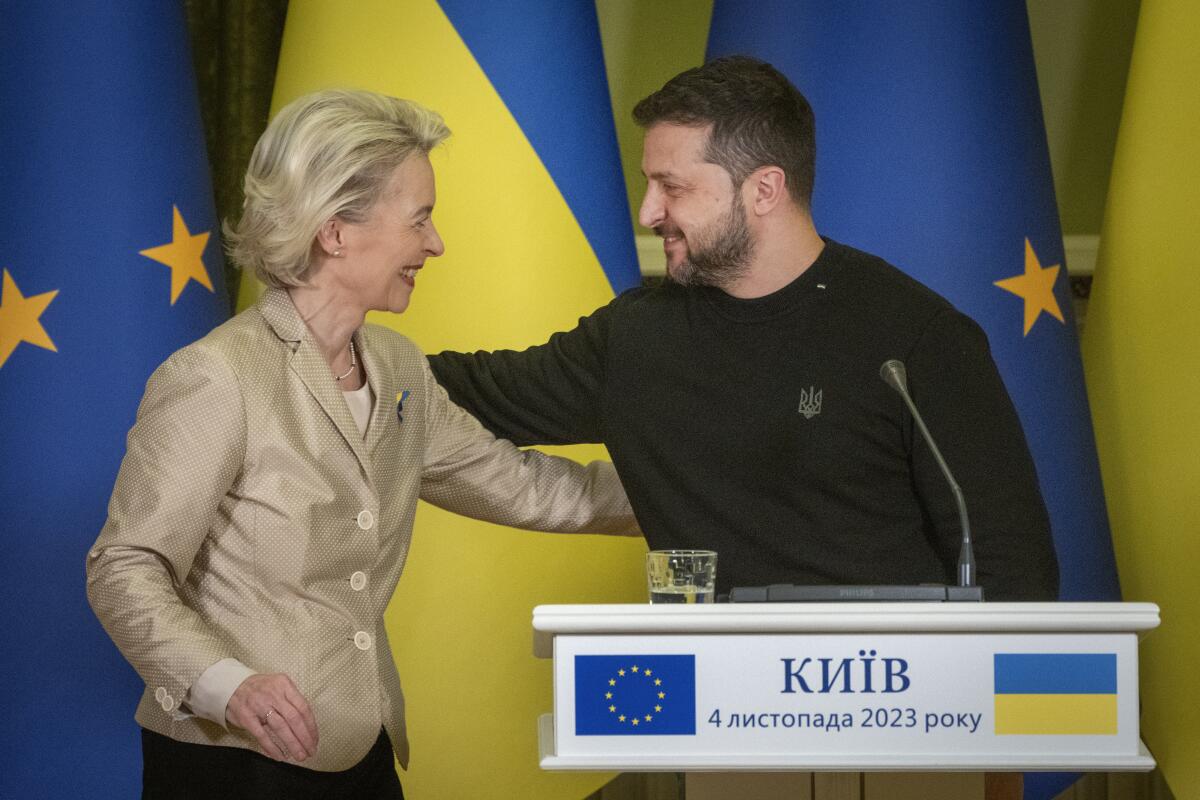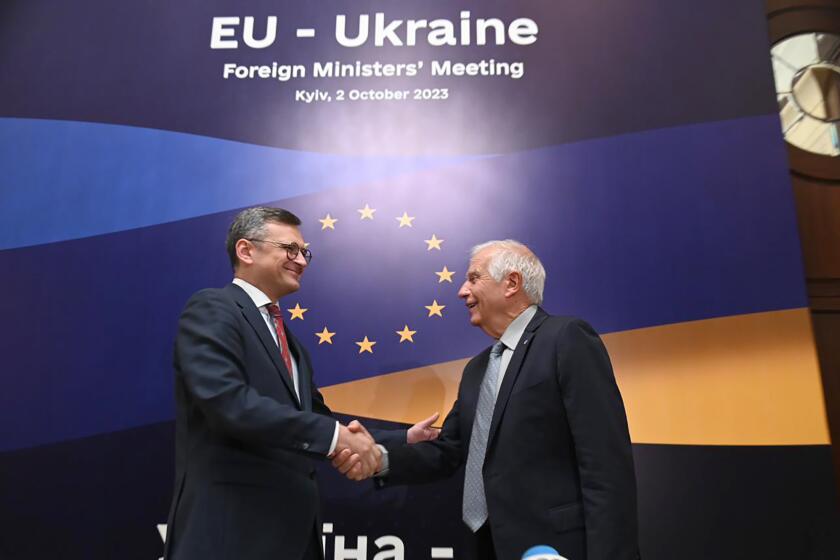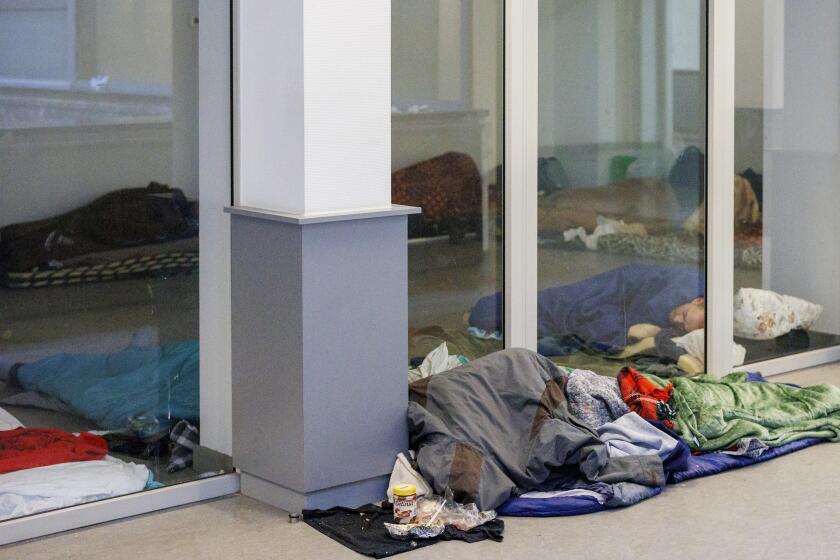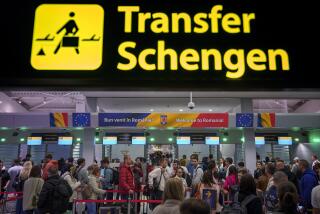Ukraine moves forward in its EU membership quest while Balkan hopefuls slip back

- Share via
BRUSSELS — Ukraine, Moldova and Georgia received positive news Wednesday about their quests to join the European Union, but countries in the volatile Balkans region that have waited years longer to become members of the world’s biggest trading bloc appeared to slip back in the queue.
In a series of reports, the EU’s executive branch recommended that war-ravaged Ukraine be permitted to open membership talks, once it has addressed some shortfalls.
The European Commission lauded Ukraine, which Russian troops invaded last year, saying that the government “has shown a remarkable level of institutional strength, determination and ability to function.” But it said talks should start only after it has addressed corruption, lobbying concerns and a law on national minorities.
Ukraine’s neighbor Moldova was delivered a similar message.
Georgia was told that it should officially be named as a candidate to join once it addresses its own shortcomings, including in the fight against corruption and election deficiencies. This does not mean that it will start accession talks soon. The country will have to clear more reform hurdles before that can happen.
The commission’s proposals, outlined in annual progress reports, mostly provide technical guidance to the 27 EU member states on how much progress countries have made in aligning their laws and standards with those of the bloc.
Some of Europe’s top diplomats gather in Kyiv in a display of support for Ukraine in its fight against Russia as signs emerge of political strain.
EU leaders are expected to decide whether to endorse those recommendations at a summit in Brussels on Dec. 14-15. There is no guarantee that they will agree unanimously to do so. Hungary and Slovakia are notably cool about Ukraine’s aspirations, for example.
For 20 years, the prospect of EU membership has been a powerful driver of pro-democratic reform in countries wanting to join. But those in the Balkans — Albania, Bosnia, Montenegro, Serbia and Kosovo — have become discouraged by the bloc’s failure to live up to its lofty membership promises.
On the other hand, some aspirants appear to be treading water.
Bosnia remains plagued by ethnic divisions that make reform an almost impossible challenge. The commission said that it should start membership talks only after more progress was made. It expressed concern about the justice system and other rights failures in the Bosnian Serb part of the country.
Asylum applications in the European Union continued to rise in the first half of 2023, putting pressure on the bloc’s limited hosting capacities.
Serbia and Kosovo refuse to normalize their relations and stand last in the EU’s line. After one of the worst cross-border attacks in northern Kosovo in recent years, their leaders can’t tolerate being in the same room.
In the days before the recommendations were announced, commission President Ursula von der Leyen toured the Balkans to promote an economic growth plan containing $6.4 billion worth of free European loans and other support in exchange for more reforms.
Last month, a senior EU official said that some Balkans countries “continue to see themselves as the center of our attention, and refuse to accept or admit that actually it’s Ukraine.” The senior official requested anonymity to speak frankly about the politically sensitive issue.
He said the consensus among many EU officials working with Ukraine was that Kyiv “is demonstrating everything that we are missing in the Balkans: energy, commitment, enthusiasm.” He said the commission’s enlargement reports would be “the objective indicator of the situation.”
Breaking News
Get breaking news, investigations, analysis and more signature journalism from the Los Angeles Times in your inbox.
You may occasionally receive promotional content from the Los Angeles Times.
Meanwhile, Turkey’s longtime hopes of joining appear to be at a standstill. The country started its EU membership talks in 2005, but they have barely advanced in recent years. Ankara’s progress report made for grim reading, despite the bloc’s reliance on Turkey to prevent migrants from coming to Europe.
The commission noted “serious deficiencies in the functioning of Turkey’s democratic institutions.” It said that “democratic backsliding continued.” Human rights standards declined, and no progress could be found in the fight against corruption.
More to Read
Sign up for Essential California
The most important California stories and recommendations in your inbox every morning.
You may occasionally receive promotional content from the Los Angeles Times.















